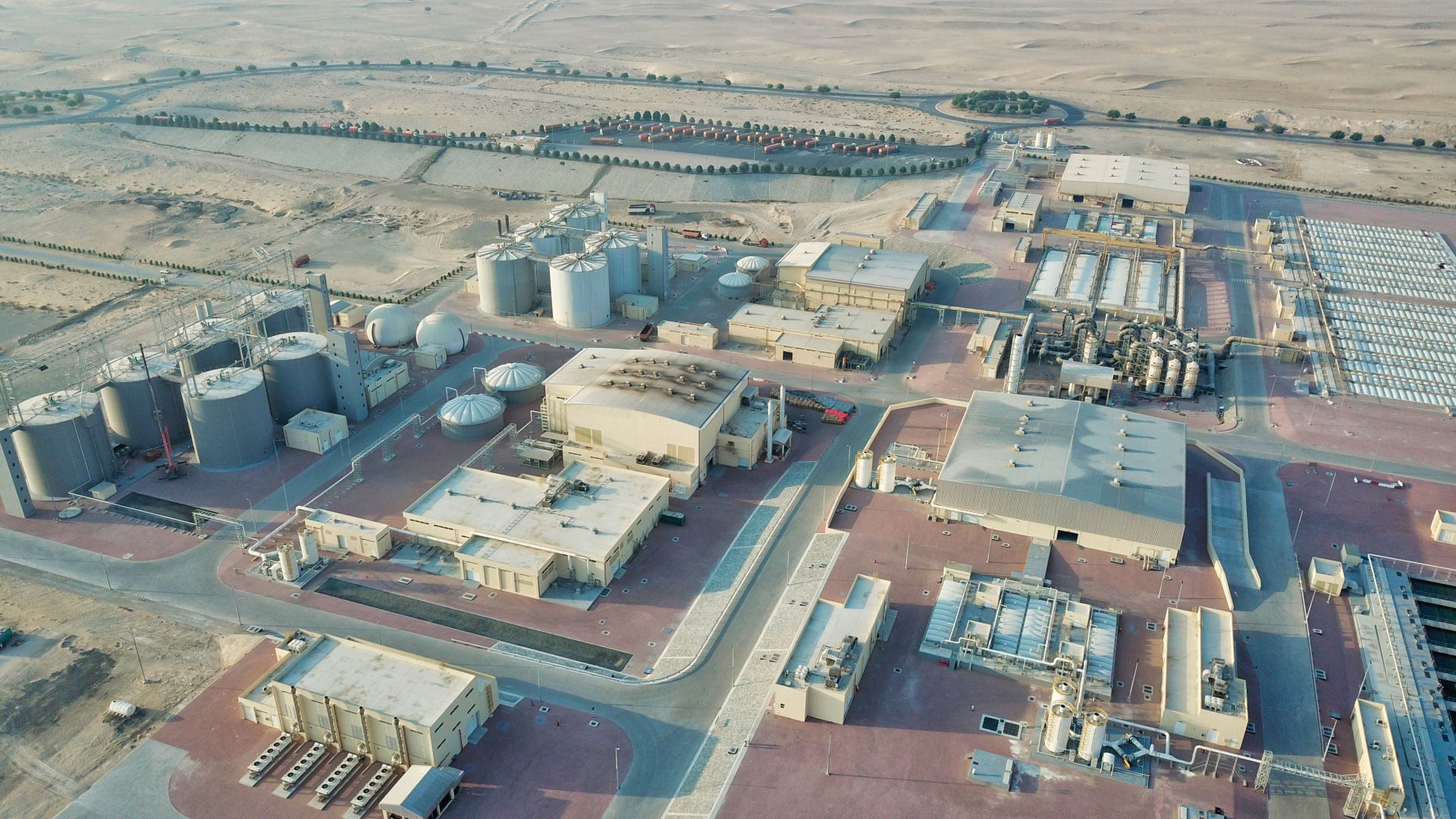
#Overview
The Jebel Ali Sewage Treatment Plant is the largest project of its kind that BESIX has undertaken. This signature venture assures that all of Dubai’s sewage is treated to international standards and without environmental impacts. Combined with the existing Jebel Ali Phase 1 sewage treatment works, the new facilities will treat the equivalent of the sewage flow originating from a city of 3.35 million people.
#Details
700 M
Litres of desalinated seawater saved each day
375,000 t
Of water treated a day
670 ha
Water treatment plant site
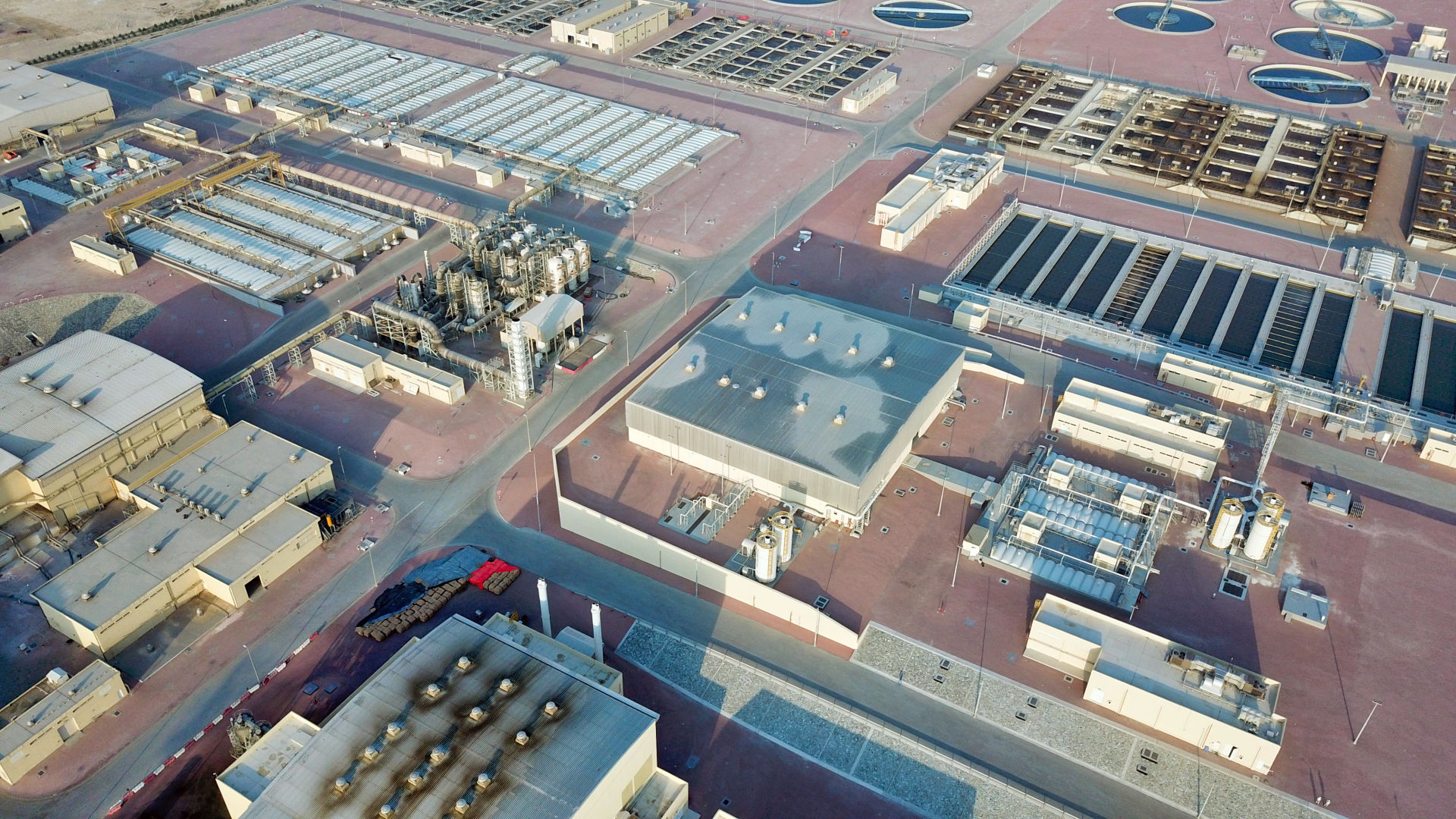
#Delivery
Sustainability on a remarkable scale
Unprecedented magnitude
Dubai has strict irrigation water standards which all sewage water treated by this plant must meet. This process allows the city to reduce its use of expensive desalinated seawater for non-potable use by 700 million litres per day, through reuse applications such as irrigation. Over the three-year construction period, BESIX – in partnership with Larsen and Toubro – built numerous tank clusters and structures. Each tank cluster consists of several units, including pre-sedimentation tanks to capture the settable solids, aeration tanks where oxygen breaks down the contaminants, and large diameter clarifiers to separate the biological bacteria from the clean water. All these structures are interconnected by an impressive network of large diameter pipes, moving 375,000 tons of water between treatment units – 24 hours a day, seven days a week.
Innovative sustainability
As well as providing a facility for recycling water, the Jebel Ali Sewage Treatment Plant is unique in how it deals with the by-product of its operations – in this case, the sludge. Usually, this liquid excess product is disposed of as landfill. However, an innovative process now allows for the sludge to be anaerobically digested and then dried in state-of-the-art sludge dryers. This digestion process produces methane gas, which in turn is used as fuel to evaporate excess water.
Communication delivers results
Cooperation was a high priority on this project, from the meticulous planning that was undertaken prior to construction, to the integration with existing facilities. Effective and clear communication was also key to ensuring coordination between various trades on a day-to-day basis. This meant that interfaces between civil works and tasks involving the equipment, long piping, and electrical cables, were precisely planned to reduce mistakes and the need for costly and time-consuming corrections.
“The whole process produces bio-solids which Dubai uses as fertilizer and soil improver in their numerous landscaped areas: a feature which differentiates green Dubai from other desert cities. This project puts BESIX in a good position to tackle future large-scale water projects in a sustainable manner.”
Christophe Ledur, General Manager Middle East, BESIX Sanotec
#Gallery
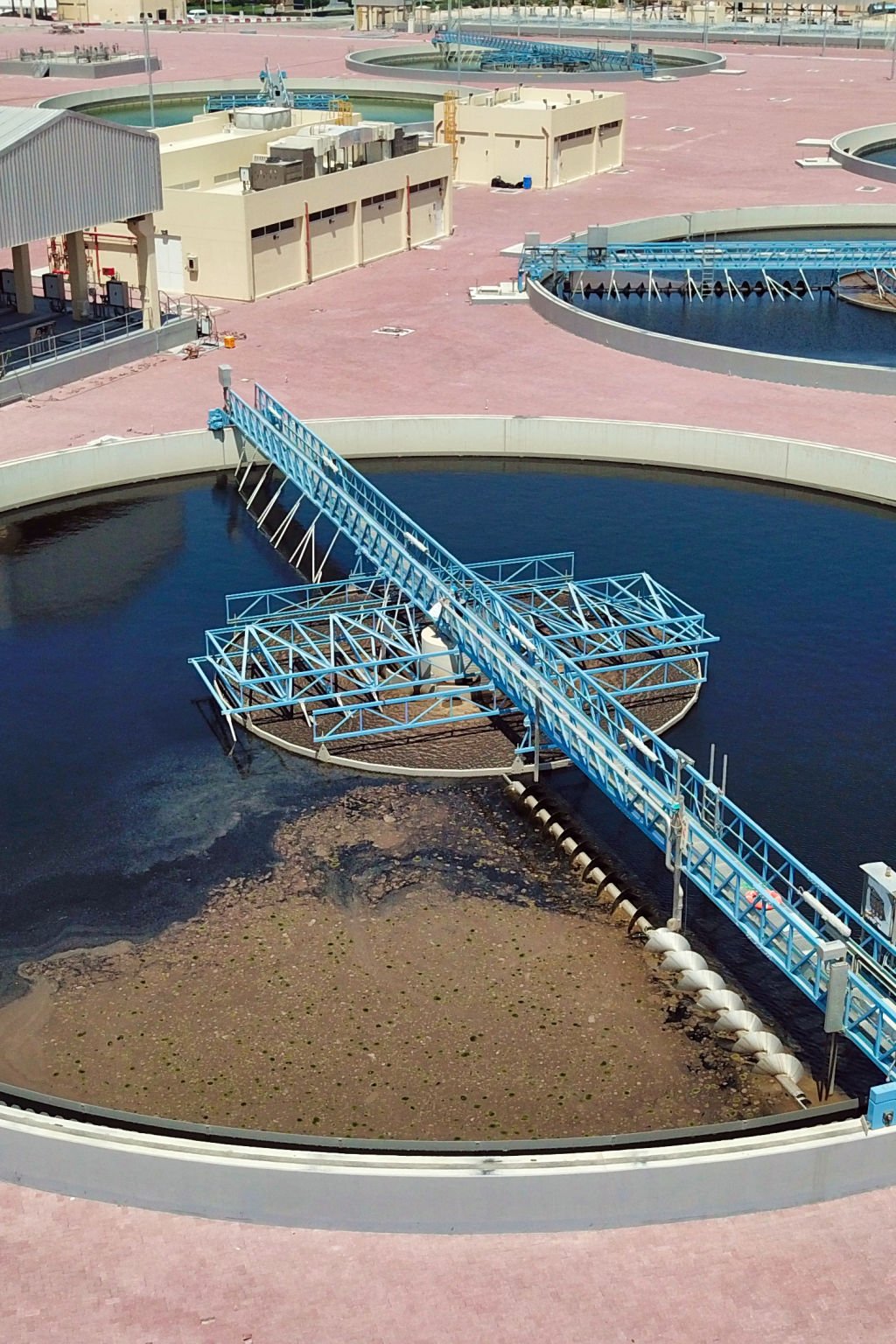
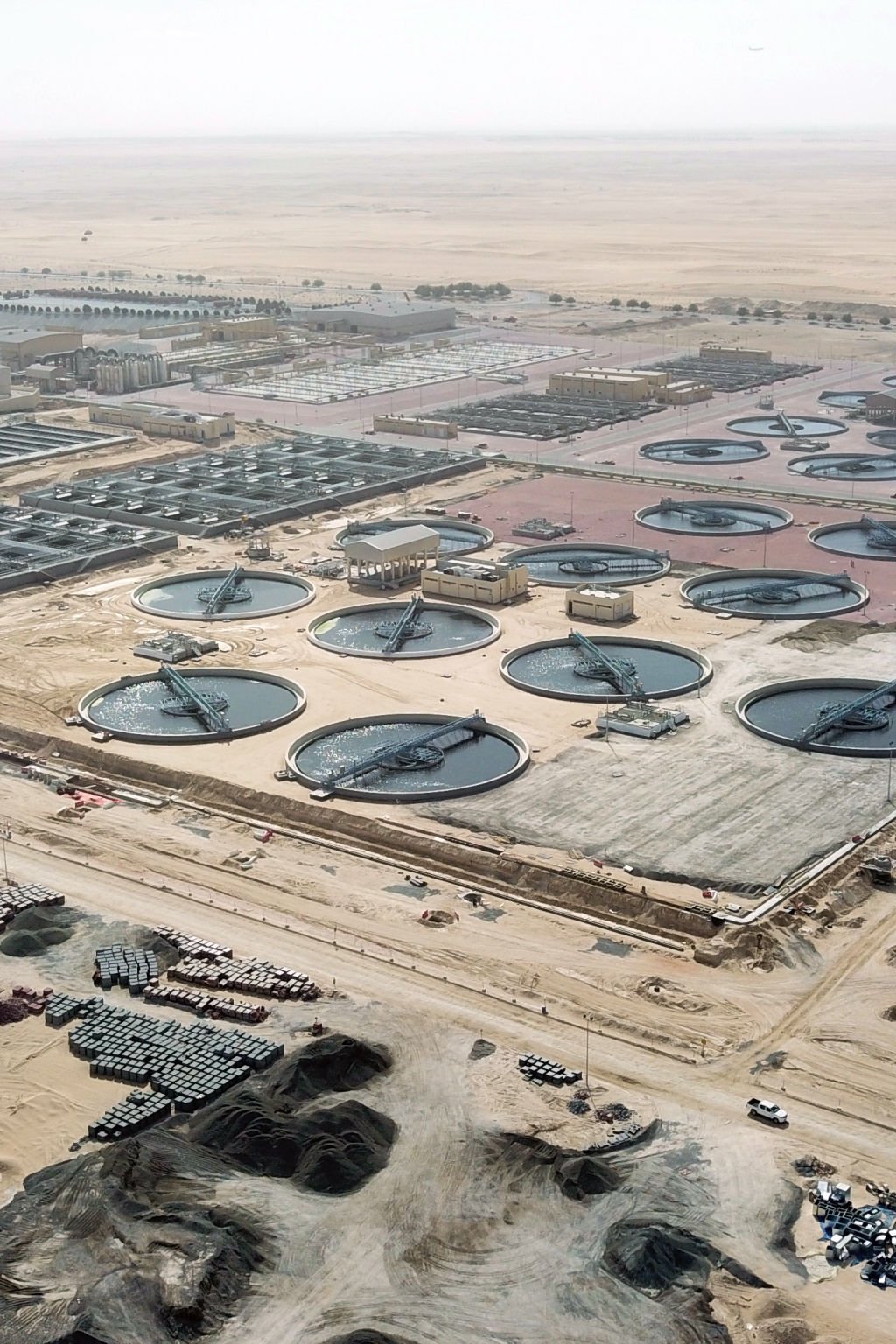
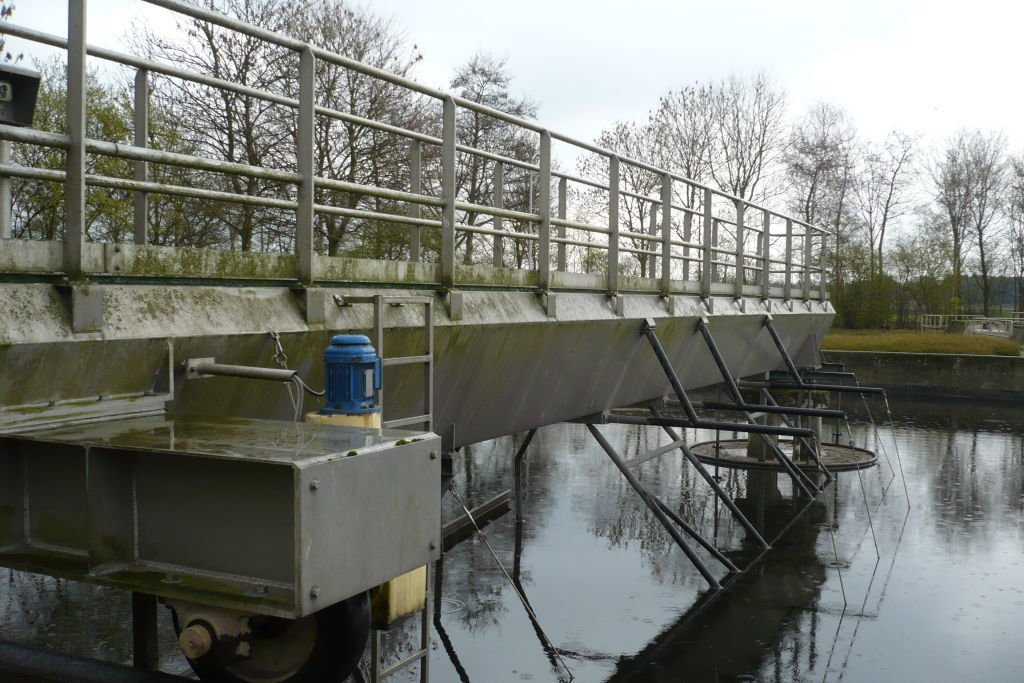
Water Infrastructure
Putte and Ossendrecht Wastewater Treatment Plant
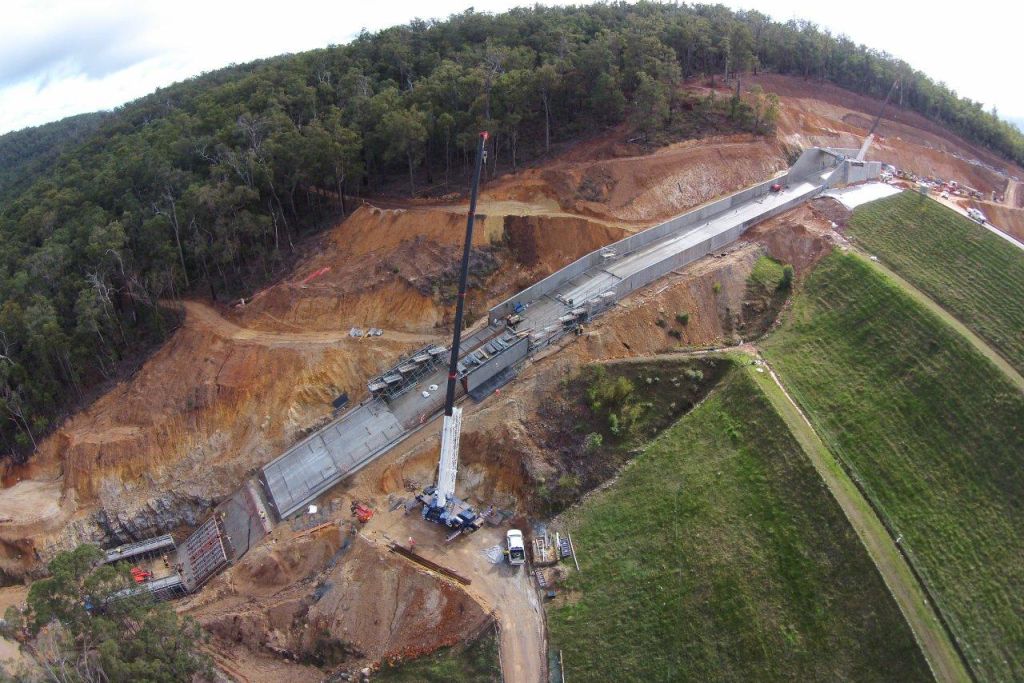
Water Infrastructure